8, May 2018
Southern Cameroons Crisis: “We trust the Catholic Church in the Anglophone areas, but not the bishops in the French-speaking areas,” 0
Agbor Gilbert Ebot has slept no more than two hours, he is exhausted. Nevertheless, the organiser of the Cameroon International Film Festival has been up since 6 am, headed to the police station in Buea, capital of the Southwest region of Cameroon, in the pouring rain.
Raking in money during the crisis
Most Buea locals have similar stories to tell. Ever since the conflict in Cameroon’s English-speaking areas escalated, security forces are omnipresent. Truckloads of heavily armed soldiers patrol the city at night. It’s a militarised state, says a local journalist who asked to remain anonymous for fear of reprisal. Residents suspected of being members of the so-called Ambazonia Defence Forces who are fighting for independence from Yaounde are arrested all the time, he says, adding that he has visited people held at the police station, where the conditions are a disaster. Those detained could not expect an actual trial, and bribes to get them released are common, the reporter told DW. “A lot of money is being made from this crisis.”
The country’s colonial past is still today behind the tensions.
Cameroon gained independence in the 1960s, when the former French-speaking mandated territory was joined with the English-language regions. The country has two official languages, two education systems, two legal systems. However, the minority in the Anglophone southwest has felt disadvantaged and marginalised for years. In 2016, lawyers in the English-speaking region took to the streets, followed by a teacher strike and more protests. The government ignored their demands and instead reacted with a security crackdown. Several protesters were killed, the internet was switched off for three months while strikes paralysed schools, and businesses closed one day a week for special “ghost town days.”
President declares war on separatists
Paul Biya, Cameroon’s President who’s been in power for more than 35 years, instituted a Commission for Bilingualism and Multiculturalism, but many English-language speakers argue that is not enough. Demonstrations flared again in late 2017, and security forces killed at least 40 people. The protest became radicalised, various separatist groups formed, killing security and state officials they believed to be police informers. The president has since declared war on the separatists.
Now the battles lines are drawn. More than 100 civilians and 40 security officers have died. The International Crisis Group (ICG) has urged the Catholic Church to mediate in the conflict. The church represents one out of three Cameroonians, it is a powerful force.
“I agree, but it will be very difficult under the present circumstances,” Buea bishop Emmanuel Busho told DW, adding that the top authority in the country isn’t prepared to enter into a dialogue. “They are trying to dictate the conditions for a dialogue but we believe we need to speak as equals – if you pose conditions, there can be no dialogue.”
Church is divided
The government has refused to speak to the radical groups. DW asked for but was not granted an interview with a government representative. In 2016, the Catholic bishops wrote the president a letter detailing the Anglophone Cameroonians’ worries but the government accused the bishops of fuelling the conflict. Moreover, even the Francophone and the Anglophone bishops don’t see eye to eye. “We trust the Catholic Church in the Anglophone areas, but not the bishops in the French-speaking areas,” an activist who supports the separatists told DW. The Francophone bishops are regarded loyal to the government he added: “Before the crisis, both chose sides.”
Whether or not the church can act as mediator will depend on whether the bishops can agree. If they can’t, the conflict threatens to escalate further. Separatists have told DW they would do everything in their power to prevent presidential elections scheduled for October — hoping to force the government to the negotiating table.
Source:Mail&Guardian

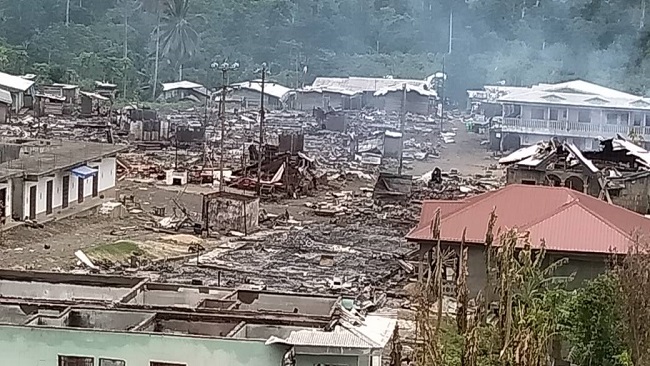



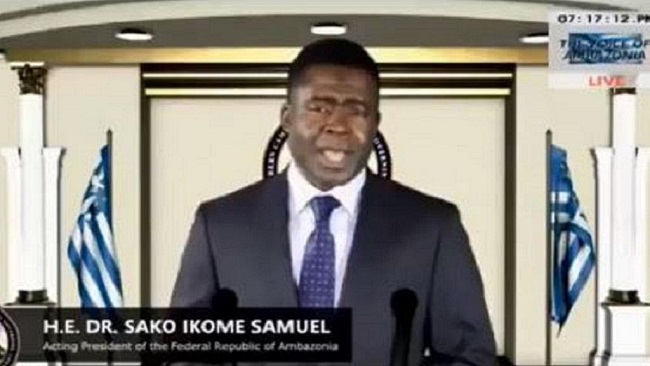
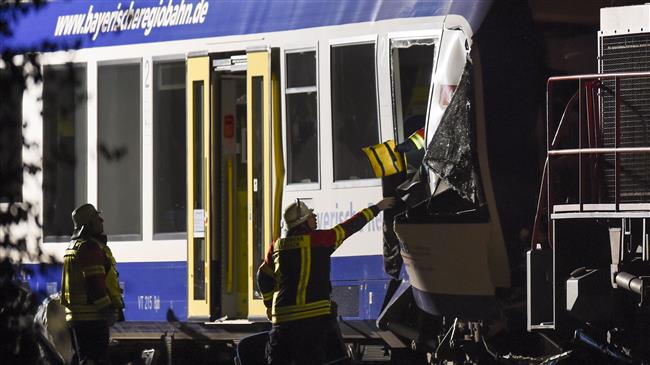
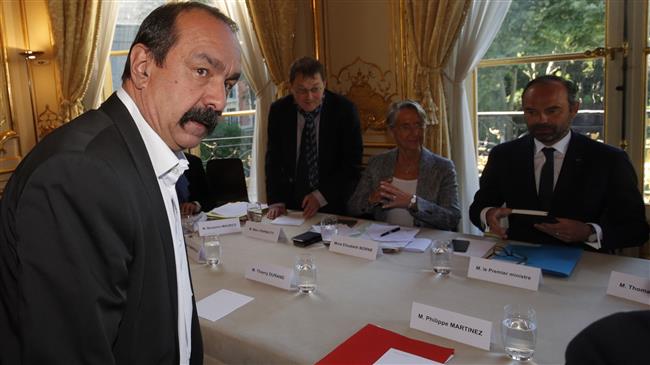

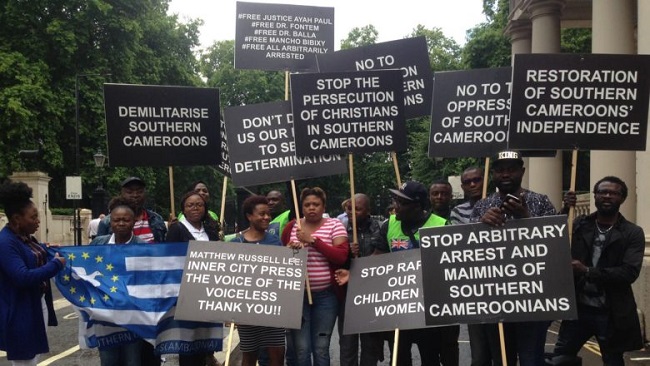
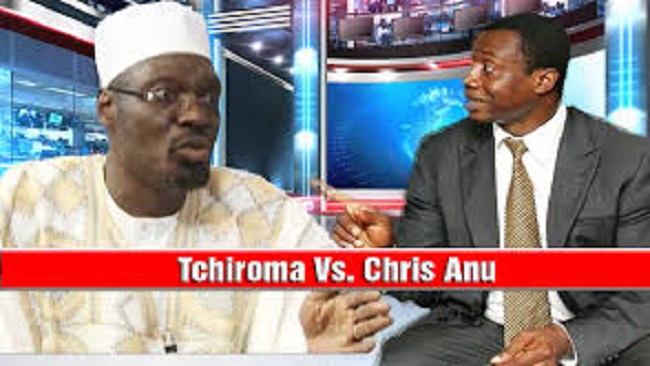
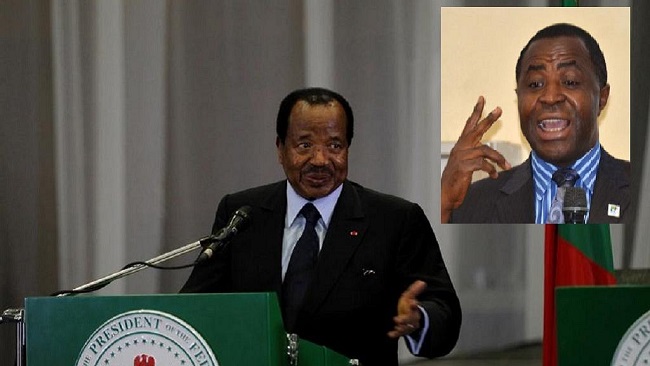












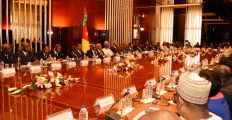




8, May 2018
Biya regime batting Insurgencies, Illegal Weapons 0
Cameroon is cracking down on weapons proliferation as it battles two insurgencies and prepares to hold important nationwide elections this year. The military says it discovered a large cache of illegal weapons in a warehouse in Awae, near the capital.
Cameroon’s military raided the warehouse April 30 after locals reported suspicious movements to and from it. Adjutant Chef Major Patrice Bella is a military official who led the operation.
He says five gunmen working with the arm dealers fought back but were overpowered by the military. He says they will be investigating to find out the true owners of the weapons cache and what the weapons were to be used for.
Inside the warehouse, soldiers discovered 10,500 rounds of ammunition, as well as an undisclosed number of explosives, guns, cutlasses and knives. So far, all those arrested are Cameroonian nationals.
The location of the warehouse has sparked concern. Awae is 55 kilometers from the capital. The town hosts an international school for security forces called EIFORCES that trains African militaries on peacekeeping techniques.
Officials suspect the weapons came overland from neighboring countries, in particular Nigeria. However local residents wonder how they got past police and gendarme posts around Awae.
The discovery remains a hot topic of local conversation. 41-year-old road engineer Joseph Mbida says he is frightened because the discovery of ammunition and weapons amassed so close to Yaounde could mean people are planning to try to destabilize the country. He says he is counting on the military to track down those responsible.
Cameroon heads to presidential, parliamentary and local council elections starting in October. Meanwhile the country is grappling with instability in the Far North, where troops continue to battle Boko Haram, and in the two English-speaking regions, the northwest and the southwest, where separatist rebels are demanding independence.
In April, the government banned even the legal sale of weapons to civilians.
Paul Atanga Nji, minister of territorial administration, addressing a security meeting in Yaounde, said there are as many as 30,000 war weapons and small arms in circulation in Cameroon.
He says the use of weapons is reaching alarming proportions in Cameroon, threatening the security of everyone. He says some criminals even rent weapons to kill, steal and create disorder and that armed gangs are now found in all major cities and towns. He says the government must control its borders and stop the sale of arms.
In Cameroon, a 2016 law made the unlawful possession of a firearm punishable by a prison term of five to ten days and a fine.
However, the use of illegal firearms and weapons is judged by a military tribunal, with a possibility of life in prison if the tribunal decides the offender meant to disturb public order and peace.
Source: VOA